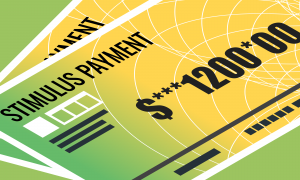Nelson Capital Management


The Coronavirus Aid, Relief, and Economic Security (CARES) Act of 2020 is an estimated $2.2 trillion package passed by U.S. lawmakers to help support individuals and businesses that have been impacted by the spread of coronavirus. This is the third aid package passed by Congress meant to keep affected businesses and individuals afloat during this economic disruption.
 The package allocates approximately $560 billion dollars to individuals and $877 billion to businesses, both large and small, that are severely hit by the spread of this disease. The remainder of the nearly $2.2 trillion will support public health, state and local governments, education, and other safety net programs.
The package allocates approximately $560 billion dollars to individuals and $877 billion to businesses, both large and small, that are severely hit by the spread of this disease. The remainder of the nearly $2.2 trillion will support public health, state and local governments, education, and other safety net programs.
Below are some of the key changes that have been made to support individuals and small businesses.
This historic legislation was passed quickly in response to the unprecedented shock. How some of its provisions will be implemented is still uncertain.
Individual investment positions detailed in this post should not be construed as a recommendation to purchase or sell the security. Past performance is not necessarily a guide to future performance. There are risks involved in investing, including possible loss of principal. This information is provided for informational purposes only and does not constitute a recommendation for any investment strategy, security or product described herein. Employees and/or owners of Nelson Roberts Investment Advisors, LLC may have a position securities mentioned in this post. Please contact us for a complete list of portfolio holdings. For additional information please contact us at 650-322-4000.
Receive our next post in your inbox.